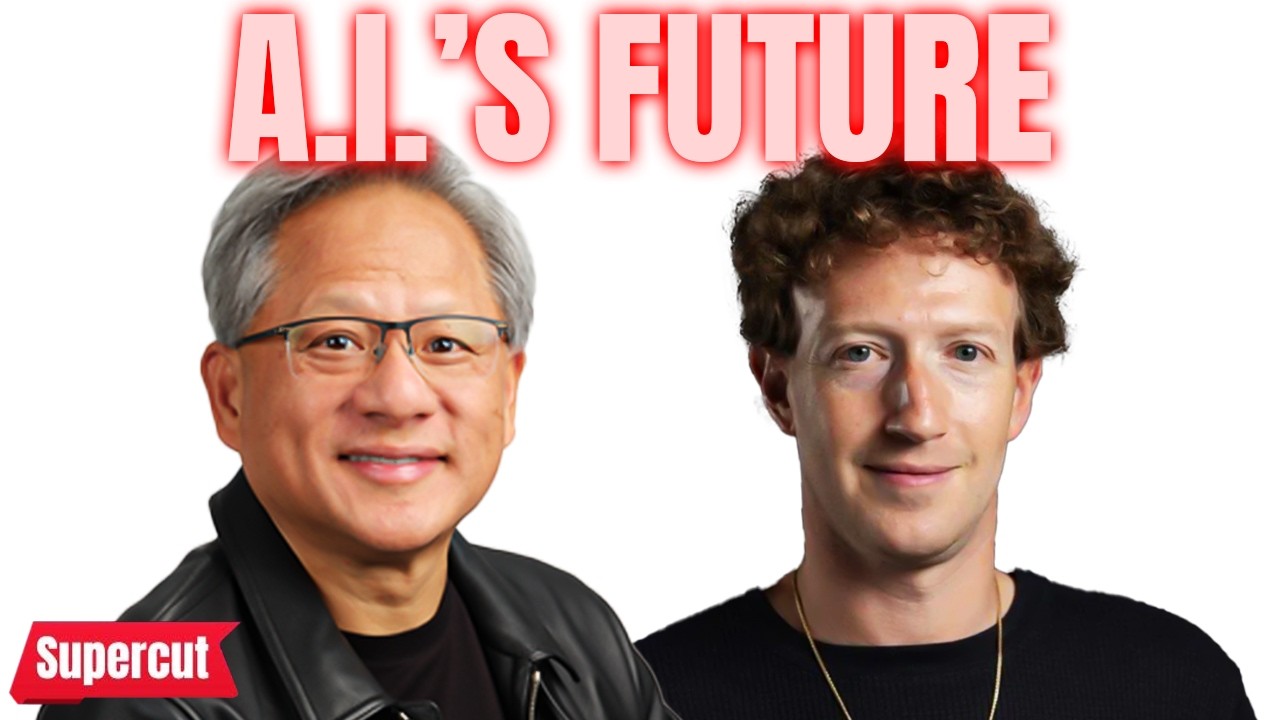In a discussion at SIGGRAPH 2024, Mark Zuckerberg and Jensen Huang explore the future of generative AI, highlighting its potential to transform content creation on platforms like Instagram and the development of more generalized AI models for enhanced user engagement. They also discuss the launch of Meta AI Studio for personalized AI agents and the vision for smart glasses to integrate seamlessly with AI technologies for improved communication and augmented reality experiences.
In a discussion at SIGGRAPH 2024, Mark Zuckerberg and Jensen Huang delve into the future of artificial intelligence, particularly focusing on generative AI and its applications within Meta. Zuckerberg emphasizes the transformative potential of generative AI in content creation on platforms like Instagram, suggesting that much of the content users see will eventually be generated using AI tools. This evolution will enhance the way users interact with content, moving towards a future where AI can create personalized content on-the-fly, tailored to individual interests.
Zuckerberg discusses the importance of developing more generalized AI models capable of understanding and synthesizing various types of content. He highlights the progression from having separate models for different content types to a unified AI system that can effectively manage diverse data. This shift is expected to improve the quality of recommendations and user engagement, allowing for more seamless interactions across different media formats. The ultimate vision is to create a comprehensive AI model that can adapt over time to user preferences and behaviors.
One of the exciting developments mentioned is the introduction of Meta AI Studio, which aims to empower creators to build AI agents that reflect their unique styles and capabilities. This initiative will allow users, including artists and businesses, to create personalized AI assistants that can manage customer interactions, provide support, and even roleplay social scenarios. As users create their own AI agents, the ecosystem will diversify, offering a range of unique experiences rather than a one-size-fits-all approach.
Zuckerberg also touches on the significance of open-source philosophy in AI development, illustrating how Meta has embraced this approach through projects like Llama. He explains that open sourcing AI models fosters a collaborative ecosystem that benefits all participants, driving innovation and reducing costs. By sharing foundational technologies, Meta aims to ensure that businesses can develop and maintain their AI systems without being locked into proprietary platforms, promoting a more open and competitive landscape.
Finally, the conversation shifts to the future of mixed reality and smart glasses. Zuckerberg envisions a world where smart glasses become a ubiquitous tool for communication and interaction, integrating seamlessly with AI technologies. He discusses the ongoing efforts to develop stylish, functional smart glasses equipped with advanced sensors, enabling features like live streaming and virtual meetings. The goal is to create a device that not only enhances user experience but also becomes an integral part of daily life, paving the way for a new era of augmented reality interactions.
